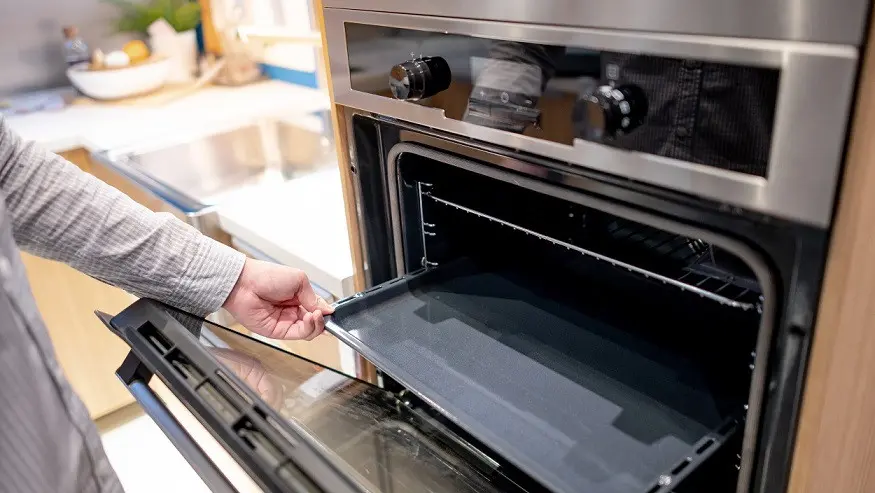SAVE ENERGY
Energy should never be wasted carelessly. The current geopolitical situation and the associated exorbitant increases in gas, oil and electricity prices make it all the more important to use available resources sparingly. You can read here which simple measures can already lead to noticeable savings in every household.
HOW CAN I SAVE (HOT) WATER IN MY HOUSEHOLD?
Installing flow regulators and water-saving taps can reduce overall water consumption.
If your toilet cistern is leaking or one or more taps are dripping - fix it immediately! In the worst case, dripping toilet cisterns can waste between 30 and 40 litres of water per day. Similarly, dripping taps can send over 1,000 litres of water down the drain unused over the course of a year.
Children in particular, but also often adults, leave the water running in the shower while soaping up. Similarly, the water often runs all the time when brushing teeth or shaving. In all of these cases, turning off the water in the meantime leads to noticeable savings.
Last but not least, an appeal to all "bathtub fetishists": Showering consumes much less energy (approx. 3-4 times) than a full bath.
All measures that lead to a reduction in water consumption are also reflected in the (non-)payable sewerage costs, hence the double savings effect.
SAVE ENERGY WHEN DOING THE LAUNDRY
As with all electrical appliances, it is important to ensure that the washing machine and/or tumble dryer is/are not an "energy guzzler" at the time of purchase. The easiest way to recognise this is to look at the energy efficiency labels attached to them.
Also ask yourself the following questions: How many people live in your household? How old are they and what "consumption" of clothes do they have? Passionate sportspeople, for example, have a lot of sportswear in addition to work and leisure wear. Young children often have to change their clothes several times a day, etc. It makes a big difference how much laundry is produced in the household in total and which appliance (washing machine, tumble dryer) you should therefore buy to match this quantity. It sounds like a "truism" in this context, but only wash your laundry when the washing machine can be filled to the brim. This costs far less energy than washing twice with a half-full machine!
It is well known that tumble dryers in particular can be real "energy guzzlers". Therefore, try to use them as little as possible, or even better, not at all. If available, use your balcony or terrace to hang your washing on a washing line or rack and leave it to air dry. Some larger residential complexes also have their own washing and drying rooms where you can hang your laundry.
But beware: In detached houses, laundry should not be hung up in the boiler room! Particularly with oil and gas firing systems, the burner draws in dust particles and fluff, which can subsequently contaminate the blower on the burner. Incomplete combustion subsequently leads to increased energy consumption and therefore achieves exactly the opposite of what was intended.

SAVING ENERGY WHEN HEATING TOO?
Yes, a lot of energy and therefore also costs can be saved here through simple measures and optimisations!
If you use radiators, make sure that they are fully effective and that there is no self-inflicted loss of heat. At the beginning of the heating period, the radiators must be vented and topped up with water if necessary. Air in the pipework prevents optimum heat conduction! Once this has been done, check that all radiators can radiate heat into the room as freely as possible: This is not the case, for example, if they are obstructed/enclosed by furniture or hidden behind a curtain, thus preventing the heat from being released into the room. As strange as this may sound at first: regular, correct ventilation also helps to save energy! Avoid constantly tilting windows: It takes a lot of energy to warm up an exterior wall that has been cooled down by constantly tilting the windows. Instead, ventilate several times a day for a short time (as a rule of thumb, the colder the outside temperature, the shorter the ventilation time), so that the walls do not cool down completely and the inside air is heated up again shortly - with little energy! - heated up again.
And one more thing: Is it really necessary to heat all the rooms in a flat or house to 22 or even 24 degrees Celsius? Just 1 degree less room temperature results in an average energy saving of 5%! It's better to sleep in a cool bedroom anyway and you don't have to walk around in shorts and a T-shirt in every room in winter. So hang up an indoor thermometer so that you can check this.
YOU CAN ALSO SAVE ENERGY IN THE KITCHEN

To save energy when heating, there are the following simple basic rules:
- Only preheat the oven if absolutely necessary! Rather pay attention to good time management so as not to need it. It is also better - if both functions are available - to use the hot air function, as in contrast to bottom and top heat, it is possible to make do with approx. 20 degrees less. It also allows several trays to be used at the same time, for example.
- The pots and pans on the electric hob should match the respective hob (no small pot on a large hob!). The use of matching lids on the pots also saves energy.
- If you need hot water (e.g. for pasta, etc.), heat it in the kettle first before pouring it into the pot. This saves time on the one hand and a lot of energy on the other!
The following options are available to save energy for cooling:
- Allow warm food to cool to room temperature before placing it in the fridge. This saves energy during further cooling.
- The following applies to cooling appliances (refrigerators, freezers): the lower the temperature, the higher the energy consumption. The optimum temperature for refrigerators is between 5 and 7 degrees, for iceboxes/freezers -18 degrees.
- Also pay attention to any ice formation: the more ice there is, the higher the power consumption. As a rule of thumb: 1 cm of ice corresponds to 10% more power consumption. Therefore, defrost the appliances regularly.
Last but not least: Some appliances even consume more energy in standby mode per year than for actual operation. Therefore, switch off everything that is not currently being used. Often - e.g. televisions with audio systems, children's games consoles, etc. - it also helps to plug in a multiple plug that can switch all devices on and off at the same time. This simple measure can save a significant amount of electricity, which will make your wallet happy at the end of the year.

